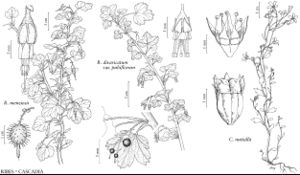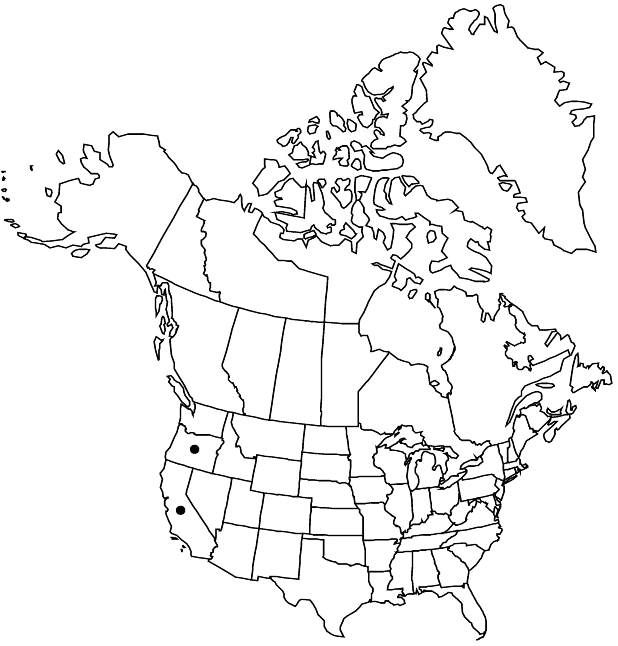Difference between revisions of "Ribes divaricatum var. pubiflorum"
Deut. Dendrol., 200. 1893,.
IllustratedEndemic
Treatment appears in FNA Volume 8. Treatment on page 38.
imported>Volume Importer |
imported>Volume Importer |
||
| Line 52: | Line 52: | ||
|publication year= | |publication year= | ||
|special status=Illustrated;Endemic | |special status=Illustrated;Endemic | ||
| − | |source xml=https:// | + | |source xml=https://bitbucket.org/aafc-mbb/fna-data-curation/src/2e0870ddd59836b60bcf96646a41e87ea5a5943a/coarse_grained_fna_xml/V8/V8_74.xml |
|genus=Ribes | |genus=Ribes | ||
|species=Ribes divaricatum | |species=Ribes divaricatum | ||
Latest revision as of 22:45, 5 November 2020
Flowers: hypanthium obconic, 1.5–2 × 1.7–2.5 mm, pilose to villous; sepals 3.5–4.5 mm; petals white, 1.2–1.7 mm; filaments 3.5–4.7(–5) mm; styles 5–7 mm.
Phenology: Flowering Mar–May.
Habitat: Coastal bluffs, forest edges
Elevation: 0-1500 m
Discussion
Variety pubiflorum occurs from Lane County, Oregon, to Alameda County, California.
Selected References
None.
Lower Taxa
None.

